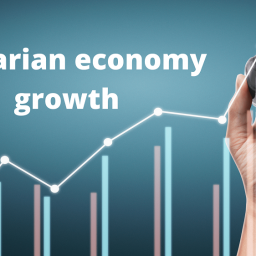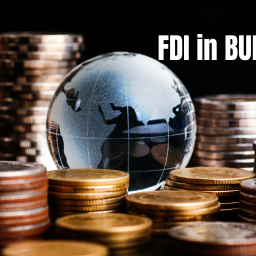
Fitch Ratings has re-affirmed Bulgaria’s sovereign long-term foreign and local currency Issuer Default Ratings (IDRs) at ‘BBB’, maintaining a positive rating outlook.
The credit ratings agency said that the outlook reflected “the dissipation of macroeconomic risks stemming from the Covid-19 pandemic, underpinned by a more resilient economy, as well as continued gradual progress towards euro adoption.”
“In Fitch’s view, short-term downside risks tied to the coronavirus pandemic and prolonged electoral uncertainty are more than offset by prospects of substantial funding for investment from the EU and a broad commitment to macro and fiscal stability (anchored by the inclusion of the Bulgarian lev into Exchange Rate Mechanism II),” the agency said.
Fitch said that it raised the estimate of Bulgaria’s economic growth in 2021 to 4.7 per cent, up from three per cent previously, after a better-than-expected first quarter of the year, largely owing to ‘resilient private consumption.”
“Recent indicators point to further strengthening of domestic demand, while exports (which have struggled in recent quarters) are likely to pick up in 2H21 thanks to cyclical factors,” Fitch said.
“Bulgaria’s very low vaccination rate (12.6 per cent fully vaccinated as of July 20, versus an EU average of 43 per cent) raises some downside pandemic-related risks, although the authorities are unlikely to put in place severe containment measures that would significantly affect economic activity,” the credit ratings agency said.
Fitch noted that Bulgaria held two parliamentary elections this year, both resulting in a “highly fragmented legislature with limited prospects of a stable government.” The credit ratings agency said that a “weak minority government” or new elections were the likeliest outcome, but said that neither was likely to pose “major risks to economic policy or to Bulgaria’s commitment to the EU/euro area accession.”
Progress towards the euro zone accession and “an improvement in growth potential”, through structural reforms or effective use of EU funds, were the main factors that could lead to positive rating action, Fitch said.
On the downside, negative action could be prompted by “adverse policy developments, for example following period of political paralysis, which reduce confidence in economic growth prospects” or a prolonged rise in public debt.
Source: https://sofiaglobe.com/
















